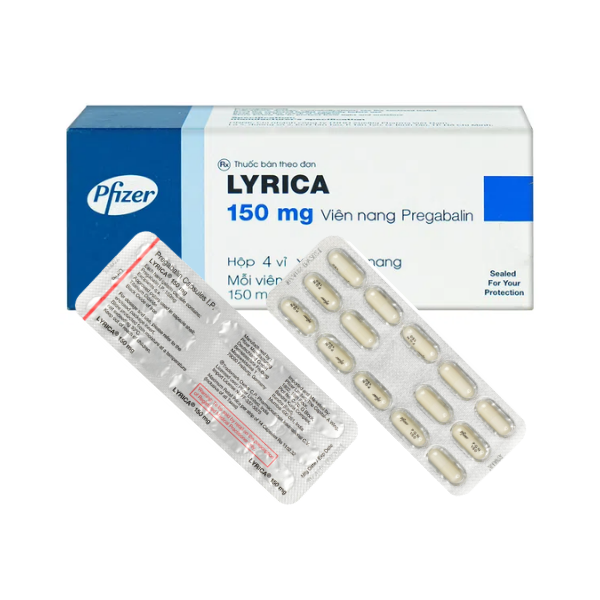Neuropathy, a condition caused by nerve damage, often leads to chronic pain, numbness, and weakness. For millions of people, these symptoms disrupt daily life, making even simple tasks unbearable. Lyrica 150 mg (Pregabalin) is a widely prescribed medication that helps manage neuropathic pain—but does it offer lasting relief?
This article explores how neuropathy develops, how Lyrica 150mg works, its effectiveness, potential side effects, and whether it can provide long-term pain control.
What Is Neuropathy?
Neuropathy occurs when nerves outside the brain and spinal cord (peripheral nerves) become damaged. This damage disrupts normal nerve signaling, leading to:
- Burning, stabbing, or electric shock-like pain
- Tingling or numbness (often in hands and feet)
- Muscle weakness
- Sensitivity to touch
Common Causes of Neuropathy
- Diabetes (Diabetic Neuropathy) – High blood sugar damages nerves over time.
- Shingles (Postherpetic Neuralgia) – A painful complication after a herpes zoster infection.
- Chemotherapy (Chemo-Induced Neuropathy) – Certain cancer drugs harm peripheral nerves.
- Trauma or Surgery – Nerve injuries from accidents or operations.
- Autoimmune Diseases – Conditions like rheumatoid arthritis or lupus can trigger nerve inflammation.
Since neuropathy stems from nerve dysfunction, traditional painkillers (like ibuprofen) often fail to help. Instead, doctors prescribe medications like Pregabalin (Lyrica) that directly target nerve pain.
How Does Lyrica 150 mg Work?
Lyrica 150 mg contains Pregabalin, an FDA-approved medication for neuropathic pain, fibromyalgia, and certain types of seizures. It works by:
✔ Blocking Overactive Nerve Signals – Pregabalin binds to calcium channels in the nervous system, reducing the release of pain-transmitting chemicals like glutamate.
✔ Calming Hyperexcited Nerves – By stabilizing electrical activity, Lyrica prevents erratic pain signals from reaching the brain.
✔ Reducing Seizures & Anxiety – Besides pain relief, Pregabalin helps control epilepsy and anxiety disorders.
Is Lyrica 150 mg Effective for Neuropathy?
Clinical studies and patient reports show that Lyrica 150mg significantly reduces neuropathic pain in many individuals. Key findings include:
- Diabetic Neuropathy – Patients experience 30-50% pain reduction within weeks.
- Postherpetic Neuralgia – Lyrica helps prevent chronic pain after shingles.
- Fibromyalgia – Improves widespread pain, fatigue, and sleep quality.
However, results vary per patient. Some feel relief quickly, while others require dose adjustments or additional treatments.
Can Lyrica 150 mg Provide Long-Term Relief?
While Lyrica Pregabalin helps manage symptoms, it does not cure neuropathy. Instead, it provides sustained pain control when taken consistently. Factors influencing long-term effectiveness include:
✅ Proper Dosage – Starting at 75 mg twice daily and increasing to 150 mg twice daily (or higher, if needed).
✅ Regular Use – Taking Lyrica daily maintains stable pain relief.
✅ Combination Therapy – Some patients benefit from combining Lyrica with physical therapy, antidepressants (like duloxetine), or topical treatments (like lidocaine patches).
Potential Challenges with Long-Term Use
- Tolerance – Some patients may need dose increases over time.
- Side Effects – Drowsiness, dizziness, and weight gain may persist.
- Dependence Risk – Stopping suddenly can cause withdrawal symptoms (insomnia, nausea).
Conclusion: Lyrica 150 mg can provide lasting relief for neuropathy, but it works best as part of a comprehensive pain management plan.
Dosage & How to Take Lyrica 150 mg
- Starting Dose: Typically 75 mg twice daily, increasing to 150 mg twice daily after a week.
- Maximum Dose: Up to 300 mg twice daily (600 mg total) for severe cases.
- Forms: Available as immediate-release (Lyrica) or extended-release (Lyrica CR) capsules.
- Best Practices:
- Take with or without food, but stay consistent.
- Avoid alcohol (increases drowsiness).
- Do not stop abruptly—taper off under medical supervision.
Possible Side Effects of Lyrica 150 mg
Common Side Effects
- Drowsiness
- Dizziness
- Dry mouth
- Blurred vision
- Weight gain
- Swelling in extremities (edema)
Serious Side Effects (Seek Medical Help)
- Severe allergic reactions (rash, swelling, difficulty breathing)
- Mood changes (depression, suicidal thoughts)
- Muscle pain/dark urine (sign of muscle breakdown)
- Vision problems (blurriness, eye pain)
Who Should Avoid Lyrica 150 mg?
- Pregnant or breastfeeding women (may harm the baby).
- People with kidney problems (requires dose adjustment).
- Those taking opioids or sedatives (increases drowsiness risk).
- Patients with heart conditions (may worsen swelling).
Always consult a doctor before starting Lyrica.
Natural Ways to Support Neuropathy Treatment
While Lyrica helps, combining it with lifestyle changes enhances results:
✔ Control Blood Sugar (for Diabetics) – Prevents further nerve damage.
✔ Exercise Regularly – Improves circulation and nerve function.
✔ Eat a Nerve-Healthy Diet – Focus on B vitamins, omega-3s, and antioxidants.
✔ Reduce Alcohol & Smoking – Both worsen neuropathy symptoms.
Final Verdict: Is Lyrica 150 mg Worth It?
Yes, for many patients. Lyrica 150 mg offers significant pain relief for neuropathy, improving sleep, mobility, and overall quality of life. However, it’s not a cure—long-term success depends on proper dosing, lifestyle adjustments, and medical supervision.
If you struggle with nerve pain, discuss Lyrica 150 mg with your doctor to see if it’s the right solution for you.



